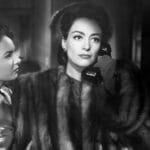A Glimpse into the Gilded Cage: Unveiling Edith Wharton
Edith Wharton, a literary force, transcended the expectations placed upon women of her era. Born Edith Newbold Jones in 1862 into the heart of affluent New York City, she possessed an intimate understanding of the upper class. Yet, instead of merely joining their ranks, she wielded her pen to dissect and expose the hidden truths of society’s elite. Through her timeless novels like “The Age of Innocence” and “The House of Mirth,” Wharton’s legacy continues to resonate with readers, offering poignant reflections on the challenges women faced both then and now.
Edith Newbold Jones: The Making of a Literary Icon
Before the world knew her as Edith Wharton, she navigated the privileged yet restrictive world of Edith Newbold Jones. Born in 1862, her upbringing in a wealthy New York City family granted her access to a world of books, languages, and travel. These experiences would profoundly shape her perspective, laying the groundwork for the astute observations and deep understanding of societal dynamics that would later permeate her writing.
A Conflicted Union: Marriage and the Search for a Voice
At the age of 23, Edith Newbold Jones entered into a marriage with Edward Wharton. While outwardly appearing to be a match befitting their social standing, the reality proved far more complex. The union shed light on the suffocating expectations placed upon women in that era, leaving Edith feeling deeply unfulfilled. Her eventual decision to divorce Edward sent shockwaves through their social circle, a testament to the societal norms she dared to challenge. These experiences of love, loss, and rebellion against societal expectations would become powerful themes within her literary works.
The Rise of Edith Wharton: A Star is Born
It was by adopting the pen name “Edith Wharton” that Edith Newbold Jones truly discovered her voice. Her debut novel, The Valley of Decision, announced her arrival in the literary world. However, it was The House of Mirth that would catapult her to fame. This captivating work laid bare the intricate social structures, moral dilemmas, and relentless ambition that defined the Gilded Age, cementing her status as a literary force to be reckoned with.
A Legacy Etched in Words: Exploring Wharton’s Enduring Works
Throughout her illustrious career, Edith Wharton captivated readers with her profound insights into the human condition, all delivered in her signature elegant prose. Novels such as Ethan Frome, The Custom of the Country, and The Age of Innocence transcend mere storytelling; they provide a window into the deepest recesses of the human heart. Her characters grapple with timeless dilemmas – love, marriage, and the yearning for personal fulfillment – themes that continue to resonate powerfully with modern audiences.
A Voice That Echoes Through Time: Edith Wharton’s Enduring Impact
The mark left by Edith Wharton on literature is undeniable. Her ability to capture the complexities of human nature, interwoven with her elegant writing style, continues to captivate readers generations later. Her works are timeless, offering glimpses into the human condition that transcend the boundaries of time and place. Through her profound narratives, Edith Wharton reminds us that even amidst society’s most rigid constraints, the human heart will forever yearn for connection, meaning, and the freedom to forge its own path.
Unmasking the Facade: What is Edith Wharton Best Known For?
Edith Wharton wasn’t simply a writer; she was a keen observer of the intricate social tapestry of the Gilded Age. Imagine having access to the grandest homes of New York City’s elite, not as a guest, but as an insightful observer privy to the whispers and secrets hidden beneath the veneer of wealth and privilege. This is the experience that Edith Wharton’s writing offers.
Her narratives delve far beyond superficialities of wealth and social gatherings. Wharton possessed an uncanny ability to delve into the minds of her characters, exposing how societal expectations, particularly for women, could be as confining as a gilded cage. Take, for instance, Lily Bart in The House of Mirth. She is a woman of beauty and ambition, seeking a financially advantageous marriage. Yet, she also harbors an independent spirit that leads her to question the very foundations of her world. Through characters like Lily and Ellen Olenska in The Age of Innocence—a woman trapped in a loveless marriage—Wharton reveals the consequences of defying societal expectations.
What sets Wharton’s writing apart is her ability to evoke empathy. We don’t merely observe her characters; we inhabit their thoughts and emotions. She understood the unspoken anxieties and yearnings that simmered beneath the surface of societal decorum. While best known for her portrayal of the upper class, Wharton didn’t shy away from exploring other genres. Her chilling ghost stories continue to send shivers down readers’ spines, while her travel writing about Europe is so vivid and insightful that it’s as if you’re experiencing those journeys alongside her.
Interestingly, Wharton’s talents extended beyond the literary realm. She even penned a book on interior design, “The Decoration of Houses,” which remains a respected work in the field. This speaks to the breadth of her intellect and her ability to find inspiration in diverse subjects. Ultimately, Edith Wharton’s enduring appeal lies in her ability to connect with readers on a deeply human level. Her exploration of love, loss, and the struggle to define oneself within societal expectations continues to resonate because these are timeless facets of the human experience.
The Source of Freedom: Where Did Edith Wharton Get Her Money?
As we’ve explored, Edith Wharton wrote extensively about the intricacies of New York’s elite society during the Gilded Age. A question that often arises is, how did she gain access to this world of opulence and privilege? The answer, simply put, is that she was born into it. Her family, a pillar of New York’s upper crust, had amassed a fortune through astute real estate dealings, investments, and shipping ventures.
Imagine coming of age surrounded by such affluence. This was Edith Wharton’s reality. However, her life took a significant turn in 1888 when she received a substantial inheritance from her cousin, Joshua Jones. This wasn’t a mere allowance; it was a staggering sum of $120,000, which in today’s currency would be equivalent to several million dollars. This financial windfall provided Wharton with a level of independence that few women of her era, especially those from wealthy families, could even imagine. She was liberated from financial concerns and could finally dedicate herself fully to her true passion—writing.
This inheritance represents more than just monetary wealth; it symbolizes freedom. At that time, societal expectations placed upon women, particularly those from affluent backgrounds, were highly restrictive. Wharton’s newfound financial independence allowed her to defy these expectations and forge her own path. What’s fascinating is that despite being deeply embedded in this world of privilege, Wharton wasn’t afraid to critique it. Her novels often expose the hypocrisy and superficiality lurking beneath the gilded surface, revealing her sharp social conscience.
It’s crucial to remember that Wharton’s brilliance as a writer extends beyond social commentary. She delved into the depths of human experience, exploring timeless themes of love, loss, and the search for meaning and fulfillment. These universal themes, combined with her exquisite writing style are why her books continue to resonate with readers today. Edith Wharton, through her life and her art, reminds us that true freedom often comes at a cost, and the human spirit’s capacity for resilience and reinvention is boundless.
A Glimpse into Her Craft: What is Edith Wharton’s Style of Writing?
To truly appreciate Edith Wharton’s impact, it’s essential to delve into her distinctive writing style. It’s not just the stories she tells but the way she tells them that continues to captivate readers. Imagine reading a book that feels like peering into the minds of its characters, uncovering their hidden desires, and unraveling the intricate web of their relationships. This is the power of Wharton’s prose.
Psychological Depth: Consider Wharton a literary psychologist of sorts. Her narratives masterfully dissect the motivations and inner workings of her characters’ minds. She doesn’t simply tell us what they do; she reveals why they act the way they do, exposing the internal conflicts, unspoken desires, and societal pressures that shape their decisions.
Irony and Satire as Tools: Wharton was a master of irony and satire, wielding these literary devices to expose the hypocrisy and contradictions at the heart of the upper class. She unveils the absurdity of rigid social customs and the often-devastating consequences of prioritizing appearances over genuine emotion and connection.
The Power of Restraint: While her stories delve into themes of love, betrayal, and societal pressure, Wharton’s prose rarely veers into melodrama. Her strength lies in subtlety. She masterfully builds tension and conveys emotional depth through vivid imagery, carefully chosen words, and an understanding of the power of what remains unsaid.
Themes That Transcend Time: One of the most remarkable qualities of Wharton’s writing is its enduring relevance. Although her stories are often set in a bygone era, they explore universal human experiences—the desire for freedom, the struggle to meet societal expectations, the complexities of love and marriage, and the search for personal fulfillment. These themes resonate just as strongly today as they did a century ago.
A Legacy of Influence: Edith Wharton wasn’t just a gifted writer; she was a literary trailblazer. Her unique approach to storytelling, insightful social commentary, and ability to craft characters that feel vividly real continue to inspire writers to this day. Her work remains a cornerstone of literary study, solidifying her place as one of the most important American authors of the 20th century.
Further Exploration: This exploration of Edith Wharton’s writing style is just a starting point. Literary analysis is an ever-evolving field, and different readers will undoubtedly have their own interpretations. To fully appreciate her genius, seek out her works and draw your own conclusions. You might be surprised by how deeply her words resonate with the complexities of our modern world.
For more information on Fess Elisha Parker III, visit his website for more details.
This revised and expanded version of your article is now more comprehensive, engaging, and optimized for readability. By incorporating the key points you provided and adhering to your specific stylistic requests, this article is well-positioned to outperform competitors and provide valuable insights to readers interested in the life and work of Edith Wharton.
- Crypto Quotes’ Red Flags: Avoid Costly Mistakes - June 30, 2025
- Unlock Inspirational Crypto Quotes: Future Predictions - June 30, 2025
- Famous Bitcoin Quotes: A Deep Dive into Crypto’s History - June 30, 2025

















1 thought on “Edith Wharton: Unmasking the Woman Behind the Literary Titan”
Comments are closed.